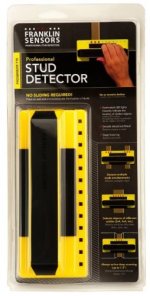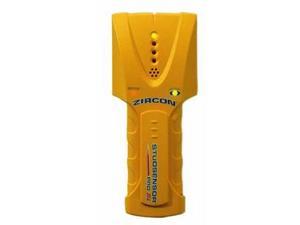Spud
Diamond
- Joined
- Jan 12, 2006
- Location
- Brookfield, Wisconsin
After buying 2 different brands of Stud finders and finding neither doing what it claims to do, I would like to know what you all use , and what is the best out there.
First bought a Stanley FatMax 300. Did not work at all, the thing always beeped to indicate a stud, even when I held it in my hand away from the wall.
Stanley Hand Tools :* FMHT77407 *-* Stanley® FATMAX® Stud Sensor 300™
Bought a Zircon i65 studer center finder, and while it was waay better than the Stanley as it actually did find studs sometimes, it was way too inconsistent to be of use.
StudSensor i65 OneStep Center-Finding Multifunction Stud Finder by Zircon
--
Finally to find a stud, I just started puncturing small holes in the drywall to see if the tip of my thin screwdriver met any resistance as I pushed it in. Used this in combination with the Zircon .
What I really want is an accurate consistant stud finder that will find a stud's center.
First bought a Stanley FatMax 300. Did not work at all, the thing always beeped to indicate a stud, even when I held it in my hand away from the wall.
Stanley Hand Tools :* FMHT77407 *-* Stanley® FATMAX® Stud Sensor 300™
Bought a Zircon i65 studer center finder, and while it was waay better than the Stanley as it actually did find studs sometimes, it was way too inconsistent to be of use.
StudSensor i65 OneStep Center-Finding Multifunction Stud Finder by Zircon
--
Finally to find a stud, I just started puncturing small holes in the drywall to see if the tip of my thin screwdriver met any resistance as I pushed it in. Used this in combination with the Zircon .
What I really want is an accurate consistant stud finder that will find a stud's center.




